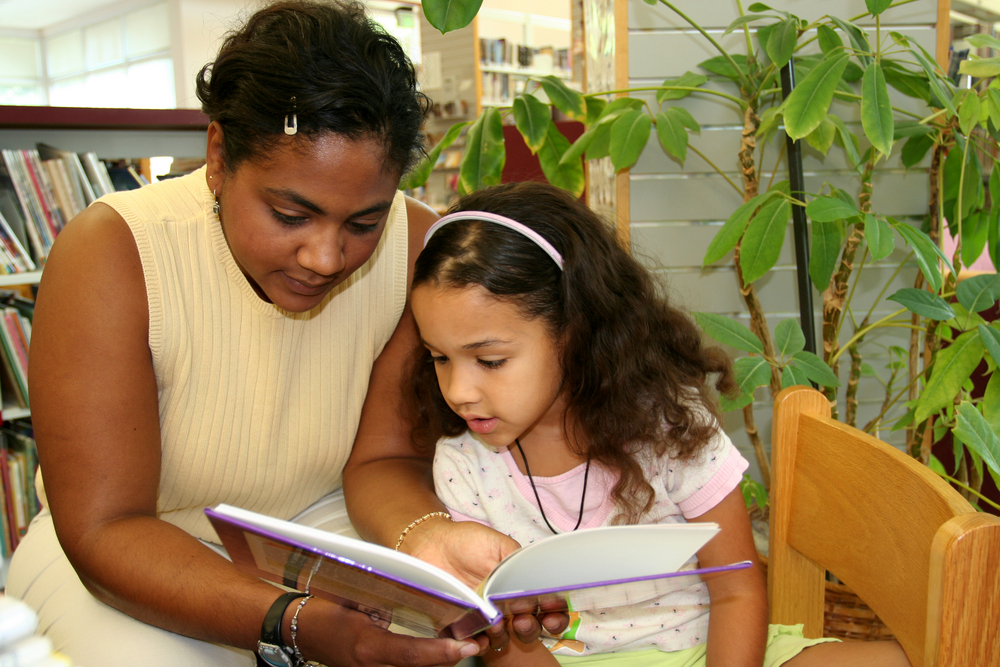![]() Children’s books centered on characters involved in the justice system can support kids with incarcerated parents and offer a compassionate window into this experience for broad young audiences.
Children’s books centered on characters involved in the justice system can support kids with incarcerated parents and offer a compassionate window into this experience for broad young audiences.
Incarceration is harmful not only to people held in confinement but to the health of their children, who, for example, may experience post-traumatic stress from witnessing a parent’s arrest or visiting a parent who is incarcerated. Additionally, financial instability can arise after a parent who is incarcerated can no longer bring home a paycheck. Those and other effects, including ones that can limit a family’s economic mobility for generations, heavily harm children with incarcerated parents.
The often overlooked impacts of incarceration on families and children is the subject matter of my book, “Demetri Makes a Memory Quilt,” about a young boy whose mom is in prison far from home. In writing this book, I collaborated with formerly incarcerated women to develop this book’s impactful plot, characters and themes.
In it, Demetri embarks on a creative healing process with the help of his grandma, Tía Alanna, and cousin Adla. He models how to manage big emotions by talking to supportive adults when he feels upset, taking deep breaths when nervous, and joking with his cousin to lift his spirits. Illustrated by Candice Bradley, the story provides an empathy-building opportunity for readers. The book incorporates rich vocabulary for little ones’ literacy development while serving as a conversation-starter for families.
Dialogue can reduce shame among families impacted by incarceration
More than 5 million children across the United States have experienced a parent’s incarceration. One in nine Black children and one in 28 Latino children have experienced a parent’s incarceration, leaving communities of color more heavily impacted.
For families that eventually are reunited, cherished moments are accompanied by challenges. Children are working through complex emotions such as depression, anxiety and withdrawal resulting from this adverse childhood experience. Meanwhile, the parent must balance dozens of competing responsibilities. These include their mental-emotional needs and those of their family; barriers to employment and education; and burdensome probation requirements.
Amid these challenges, there are powerful opportunities to strengthen family relationships and promote healing. Resources like “Demetri Makes a Memory Quilt” can help families initiate crucial conversations that reduce shame by breaking the silence about their loved one’s incarceration and building children’s understanding of the experience. Additionally, the book offers an opportunity for discussions in schools and community settings to reduce the stigma of incarceration that can otherwise lead to hurtful rumors or exclusion of children with justice-involved loved ones.
Insights from justice-involved individuals are key
People directly impacted by the justice system – those who know firsthand about its flaws and needed innovations – are essential to community-driven progress. The foundation for “Demetri Makes a Memory Quilt” was laid by those with lived expertise, justice-involved women and mothers at Cameo House, which provides a safe and stable living space for homeless, formerly incarcerated women and their children in San Francisco.
Paid for their participation in focus groups regarding the book, the women shared how they maintained relationships with their families while separated, recalled special memories, reflected on their own healing processes, and outlined the ways they discuss difficult topics with their children. These key insights, among others, were key to crafting an honest, dignified and relatable story for families impacted by incarceration.
(Places like Cameo House can provide powerful community benefits. As found in a recent independent evaluation, 100% of participants with substance issues showed decreased use while at Cameo House, 89% achieved one or more of their program goals, and 78% of graduating participants moved into permanent housing. These positive impacts provide a safety net for vulnerable families and boost their long-term wellness.)
It's essential for children to see themselves in storybook characters
For one family in San Francisco, “Demetri Makes a Memory Quilt” has already provided much needed comfort. On a recent brisk day, as sunlight peeked through the clouds, a teenage boy and his grandmother walked up to a three-story blue house known to locals as Cameo House.
The boy’s mom lives here. Before this, she had been separated from their family and confined to a jail cell while they awaited a judge’s sentencing decision. Fortunately, instead of a years-long prison sentence, the boy’s mom was offered a room at Cameo House for up to two years. There, she could reconnect with her children, participate in therapy sessions and support groups, pursue career goals, and create a foundation for her future.
Cameo House Program Director Rebecca Jackson noticed the boy’s slumped shoulders and dejected expression as he stood on the stoop. She recognized this look as that of a child with shrapnel wounds from the explosion that is a parent’s incarceration. Rebecca, herself a formerly incarcerated mother of two, turned to residential support staffer Aurora Jimenez with an idea.
“He’s Demetri! Oh my goodness, let’s give him a book!” she exclaimed. Aurora quickly brought Rebecca one of the paperback books stacked on a desk near the Cameo House entrance. Rebecca approached the boy lovingly with “Demetri Makes a Memory Quilt” in her hands. She explained the story and suggested that he read it to his younger brother. The teenager’s demeanor changed as he received this gift. His eyes welled and he cracked a smile.
As the boy departed with his grandma by his side, Rebecca reflected. “That is what this story is all about. We have never had a tool like this before - a simple way to make children feel seen.”
Renee Menart is a communications and policy analyst with the Center on Juvenile and Criminal Justice in San Francisco.
